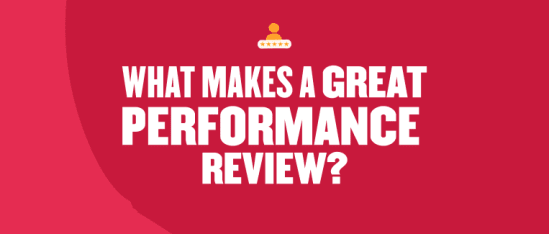An effective performance review is invaluable for HR professionals, managers, and employees to align expectations, set goals, and improve performance. One of the most important things to do to get the most out of a performance review is to prepare properly. This involves, in part, drafting and reviewing a list of performance review questions to help guide the conversation and identify important topics to cover. In this article, we’ll offer some questions you can use to maximize the effectiveness of your next round of performance reviews.
How to use performance review questions
Preparing for performance reviews ahead of time is critical for busy HR professionals. Adequate preparation will lead to a focused and productive conversation. Managers and HR professionals can facilitate proper preparation by having people answer specific questions about their goals, achievements, strengths, and weaknesses ahead of their performance reviews.
Note that the questions do not have to be one-sided: People should feel welcome to come up with their own questions and discuss things they want to talk about. The important thing is to craft reviews that address all relevant topics and issues in a way that leads to productive and open conversations. Encourage people to answer the questions as authentically as possible. Emphasize honesty and reassure them that they won’t be punished for expressing their honest opinions.
During the performance review session itself, the manager or HR professional can go over the person’s answers to the questions and bring up any relevant follow-up questions. This will ultimately serve as a jumping-off point and framework for an in-depth conversation about a person’s professional growth and path to improvement.
Performance review questions list
Now that you understand how to apply them best, let’s get to the questions!
Recommended For Further Reading
Questions about achievements, strengths, and weaknesses
Performance reviews give people the opportunity to receive positive and constructive feedback on their professional performance. These questions enable people to reflect on their accomplishments and focus on areas for growth.
- What am I most proud of achieving this past quarter/year?
- What skills and strengths have I been able to use to excel in my role?
- What areas do I want to improve in moving forward?
- Have there been any lapses or issues in the past quarter/year? Why did they happen, and what can I do to avoid similar problems in the future?
- What can I do to grow and develop this coming quarter/year?
Questions about goals
Another important outcome of effective performance reviews is giving professionals an understanding of how they can succeed moving forward. You can use the following questions to help people set goals for themselves and identify a clear path toward pursuing these goals.
- What specific, measurable, attainable, relevant, and time-based (SMART) goals can I set for the next quarter/year?
- What do I need to do to achieve my goals?
- What will help me achieve my goals?
- How do my goals align with the organization’s?
- What blockers and challenges have made it more difficult for me to work toward my goals?
- What tools are available to me to help address these blockers and challenges in the future?
- What professional development goals do I have within the organization? Where do I see myself in the next year, two years, five years?
Questions about relationships
Performance reviews can also be an opportunity to check in about how well a person works with their team and managers. These questions focus on feedback, communication, and teamwork. They also help identify any issues and how they may affect people they work closely with.
- How helpful did I find the feedback I received this quarter/year?
- To what extent does my manager help me in my role?
- Is there a way my manager could better help me perform my duties?
- Am I satisfied with the cooperation and collaboration on my team?
- Do I trust my team and/or manager?
Tying it all together
The right questions for your performance reviews will ultimately depend on your organization and the individuals on your teams. These sample questions can serve as a jumping-off point for helping you develop the list that will best serve them. With the right set of questions, your performance reviews will be more effective at helping people and managers align about the best path toward future success.
Using a smart performance review process including performance review software gives you the opportunity to take your reviews to the next level. Integrating reports and insights, goal-setting, and the ability to set review cycles, your performance reviews will be beneficial for all sides involved.


